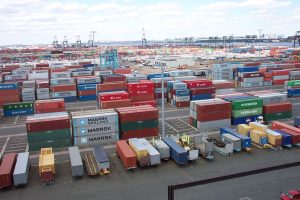In today’s rapidly evolving business landscape, financial flexibility and sustainability are paramount, particularly in the Transportation and Logistics Industry where capital-intensive assets are at the core of operations. One financial innovation that has been increasingly gaining traction is the securitization of assets. This practice has the potential to fundamentally transform the way companies in the industry approach funding and financial management.
What is Asset Securitization?
Asset securitization is the process of pooling various forms of contractual debt such as residential mortgages, commercial loans, or other cash-flow producing assets, and then selling their related cash flows to third-party investors as securities. This frees up capital that companies can reinvest in their business, improving liquidity and potentially reducing the cost of capital.
Relevance to the Transportation and Logistics Industry
The Transportation and Logistics Industry is characterized by the need for substantial capital investment in physical assets like trucks, planes, and ships. These assets are necessary for operational capability but can also be burdensome because they tie up capital. Here’s where asset securitization can be beneficial:
- Capital Release: Assets like vehicles and equipment can be converted into liquid assets.
- Balance Sheet Optimization: Securitization can help in creating off-balance-sheet financing, improving financial metrics.
- Cash Flow Management: Stable cash flows can be generated, providing more predictable revenue streams.
- Risk Diversification: Risk is transferred from the originator to the investor, diversifying the company’s liability.
- Lower Borrowing Costs: A structured financing option like this often comes with a lower interest rate.
Potential Assets for Securitization in the Industry
- Fleet of Vehicles: The most obvious choice for asset securitization, this includes trucks, vans, and other transportation vehicles.
- Warehousing Facilities: These can include storage spaces, distribution centers, or other logistical hubs.
- Contractual Agreements: Long-term contracts with reliable cash flow can be securitized.
- Technology Investments: Software, tracking systems, and other tech assets might also be viable for securitization.
Ten Reasons to Consider Asset Securitization
- Improves Liquidity
- Flexible Financing
- Access to Larger Investor Base
- Better Financial Ratios
- Risk Management
- Interest Rate Savings
- Operational Efficiency
- Cash Flow Consistency
- Strategic Resource Allocation
- Competitive Advantage
Before You Litigate, Consider This
Navigating financial options within the Transportation and Logistics Industry is complex and sometimes fraught with risks. Bad debts or payment delays from clients can impede cash flows and operational efficiency. Before you consider the often lengthy and expensive process of litigation or hiring an attorney, consider third-party debt recovery services. DCI aka Debt Collectors International specializes in such services, leveraging advanced investigative techniques and technology for effective due diligence. To learn more, visit www.debtcollectorsinternational.com or call them at 855-930-4343.
Conclusion
The securitization of assets offers a promising financial vehicle for companies in the Transportation and Logistics Industry. By converting assets into liquid capital, companies can free themselves from some of the financial limitations that often come with asset-heavy operations. However, a cautious approach is needed, particularly when considering the credit risks involved in such transactions. It’s crucial to conduct due diligence and perhaps more beneficial to consider experts in debt recovery services like DCI aka Debt Collectors International to manage and recover debts efficiently. For more information on how DCI can support your business, visit www.debtcollectorsinternational.com or call 855-930-4343.




